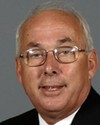Mr. Speaker, Budget 2005 contains good news for Manitoba.
The Liberal government has decided to share the gasoline tax revenues with municipalities, an amount equal to about $167.3 million over five years.
The Department of Western Economic Diversification will allocate $186 million in funding over the next five years for new economic development initiatives.
Furthermore, the department will receive $74 million in new funding over five years to work with communitiesvulnerable to economic adjustment pressures and with Western cities on their specific economic issues.
Under the 10 year plan to strengthen health care, Manitoba will receive $1.5 billion in new health care funding. I also want to mention that Manitoba will reap huge benefits from its investments in wind and hydroelectric power, agriculture, early childhood, seniors and immigration.










